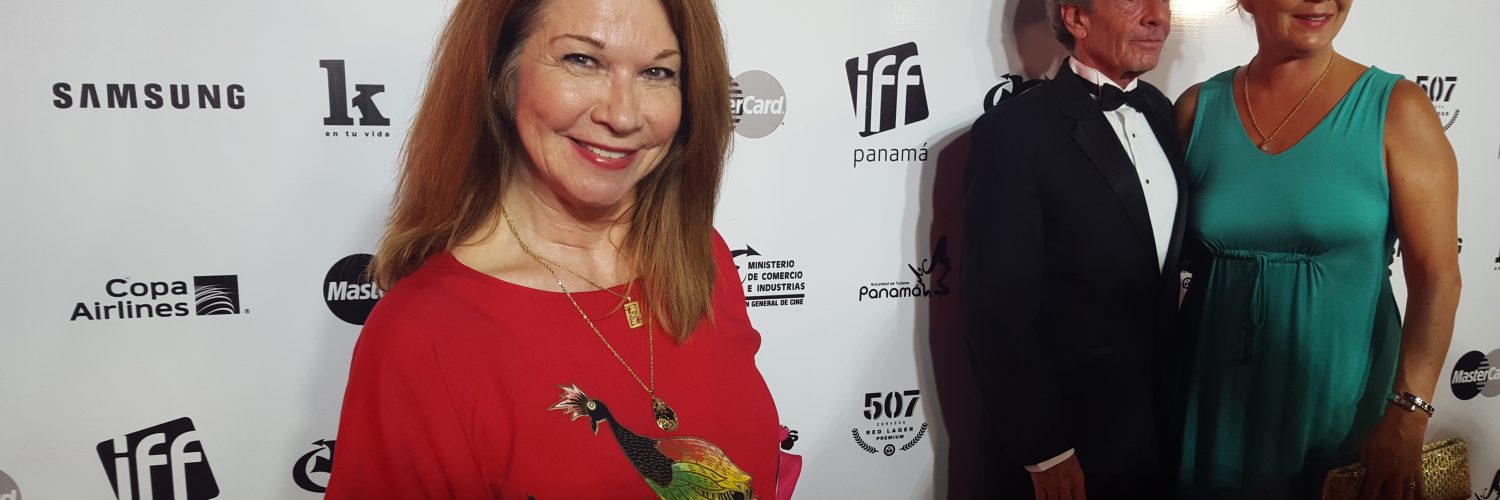http://TheDMZone.com – http://iffpanama.org – #pricelessIFFPanama
Actress Daniela Vega, star of the Oscar winning film for Best Foreign Film at the 2018 Academy Awards ‘Una Mujer Fantastica’ or ‘One Fantastic Woman,’ is interviewed by Dianemarie Collins on The DM Zone. Questions answered deal with Daniela’s musical ability, her stories about being a presenter at The Academy Awards, and the transgender role of Marina in the movie.
In one of the lovely moments in “A Fantastic Woman,” a film by the Chilean director Sebastian Lelio, the protagonist, Marina Vidal, finds herself in front of a large mirror being carried by two workers on the street. Her reflection shifts unstably in the mirror, like a wave cresting in the wind.
The motion and the instability – which also appear in another scene, in which Marina struggles in the street against a gusting wind – do not represent Marina herself, who knows exactly who she is, but the forces that impel the society around her.
That society finds it difficult to cope with the illusory feeling inherent in the fact that Marina is a transgender woman, given the way that identity is reflected in the mirror society holds up to her.
In Lelio’s film, which won the Oscar for Best Foreign Language Film on Sunday, Marina (Daniela Vega) undergoes a crisis that compels her to confront society’s attitude toward her at both the private and the establishment levels.
Marina, who is in her twenties, is a singer who possesses classic talents and appears in clubs while earning a living as a waitress. She is the partner of Orlando, 57 (Francisco Reyes), who left his wife and family for her. This is a love story, and in the few scenes that show Marina and Orlando together the director succeeds in conveying the intense emotional essence that prevails between them. But their connection is abruptly severed shortly after the movie begins, when Orlando suffers a brain aneurysm during their time together.
“A Fantastic Woman” depicts vividly the establishment’s attitude toward Marina in the wake of Orlando’s death, initially in the hospital and afterward at the hands of a policewoman from the sex offenses department. The approach of the physician and the police officer is gentle, even empathetic to a certain degree, though also formal. Primarily, though, it reflects their difficulty in knowing how to treat Marina, whose ID still lists her as male.
For example, how should she be addressed – in the masculine or the feminine? Marina also undergoes humiliation in one of the film’s powerful scenes, when she is required to have her photograph taken in the nude at a police station.
IFF Panama exists thanks to the immense passion felt by the Panamanian public towards the cinema. It is the audience of this country, always open to exchange with all the nations of the world, which marked the birth of the festival in 2012 and which has made it grow by recognizing it and supporting it as an essential cultural nutrient.
IFF Panama’s relative youth contrasts with its established position in the film circuit of Latin America. In its first edition, when it was almost an experiment,it was attended by prestigious directors like Alex de la Iglesia and Fernando Trueba, screening over 60 films from 26 different countries and packing theaters in Panama City to the brim.
Since then, the numbers continue to grow: even more films respond to our call; their prominent directors, actors, and producers eager to personally present their films to our passionate audience; an audience who clearly feels the call of the cinema as strongly as we do.



